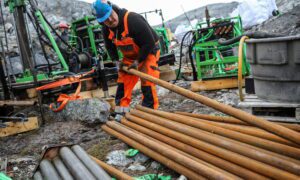In an era dominated by cloud-native applications, real-time analytics, and AI-powered platforms, it is easy to forget the older infrastructure that still quietly holds the U.S. economy together. Mainframes, often described as the workhorses of enterprise computing, remain indispensable. They handle everything from global banking transactions to government records and airline bookings, designed for reliability and security while processing billions of operations each day with minimal room for error. The machines have endured, but the expertise required to keep them running is steadily disappearing.
Across the country, organizations face a mounting challenge: the erosion of the mainframe talent pool. As a generation of professionals with deep knowledge of legacy environments approaches retirement, the pipeline to replace them remains thin. University programs focused on mainframe technologies have largely vanished, and younger IT professionals are drawn to newer fields. This gap leaves critical infrastructure, from financial systems to healthcare databases and public sector platforms, vulnerable to performance bottlenecks, service interruptions, or security failures.
It is within this climate that Mdata Service LLC is preparing to enter the market with a singular focus: helping institutions navigate the intersection of aging mainframe systems and modern technological demands. Based in Austin, Texas, with potential plans for expansion to Florida, the company aims to address this quiet but pressing crisis. Its model combines consulting expertise, modernization support, and long-term knowledge transfer, positioning it not as a temporary vendor but as a long-term strategic partner for enterprise clients.
The person behind the venture is Marcondes Antinopolus de Andrade, whose professional story mirrors the resilience of the systems he supports. Raised with a curiosity for how things work, he began his computing career more than four decades ago in Brazil and quickly stood out for his methodical approach and sense of responsibility. His career has spanned Brazil and Portugal, with partnerships involving IBM, Portugal Telecom, and Caixa Econômica Federal. Through each role, whether mentoring junior staff or leading complex migrations, Antinopolus became known not only for his mastery of IBM Z/OS environments, DB2 database administration, and CICS transaction management, but also for his warmth and willingness to guide others. Colleagues describe him as a steadying presence, someone who listens first and leads by example, always focused on empowering teams and preserving knowledge. For him, the work has always been about more than technology: it is about continuity, stewardship, and building resilience.
Mdata Service intends to offer a range of tailored services, including system assessments, transaction optimization, application modernization, and workforce development. Unlike traditional consultancies that treat legacy systems as an afterthought, the firm is being built around the nuances of mainframe infrastructure and the sustainability of client operations. Its goal is not merely to patch aging systems, but to adapt them for integration with newer architectures such as hybrid cloud environments and advanced cybersecurity frameworks.
At a national level, the stakes are high. Mainframes still process 90 percent of the world’s credit card transactions and nearly all ATM operations. They remain embedded in government, finance, healthcare, and transportation sectors. Yet the decline in available talent means organizations increasingly rely on overburdened internal staff or underqualified contractors. This amplifies the risk of costly compliance failures or widespread service breakdowns, problems that can cascade through the economy.
By positioning itself at the intersection of expertise, education, and operational support, Mdata Service seeks to become more than a consultant: it aims to serve as a stabilizing force within this critical sector. The company’s plans include hiring senior consultants, mentoring junior staff, and partnering with clients to ensure sustainable in-house capabilities. The vision is to create a feedback loop in which institutional knowledge is preserved and legacy systems can evolve without losing their reliability.
For Antinopolus, this mission is both professional and personal. “I have always believed that infrastructure should evolve, not be replaced just for the sake of change,” he said. “My goal with this company is to extend the value of what already works while helping organizations build the talent and systems they need for what comes next.”
In a business climate where disruption and novelty attract most of the attention, Mdata Service is preparing to offer something just as vital: continuity. In doing so, it may help ensure that the country’s most critical digital systems not only survive but adapt and endure.




























